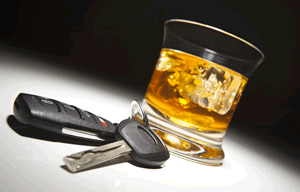Ignition interlock device requirement can I get a waiver?
Many drivers, who are arrested for driving under the influence of alcohol or drugs, simply plead guilty to DUI without fully understanding the consequences of a DUI conviction. Other drivers fight their DUI charges and are found guilty. Regardless of which occurred, if you are convicted for DUI, you will face severe fines and penalties in all states, even for a first time DUI conviction.
Recently on our legal forum a user asked, “I have installed an ignition interlock device (IID) on my car but it’s a hassle, and it’s very expensive. Is there any type of program which allows a driver to receive a waiver for the ignition interlock installment requirement following a DUI conviction?”
What is an ignition interlock device?
An ignition interlock device is a breathalyzer for your car. Drivers must blow into the device, and assuming their breath alcohol level is less than the prescribed limit, the car will start. Some states require drivers to install an ignition interlock device in their car as a requirement for license reinstatement after certain offenses such as driving under the influence of drugs or certain negligent or reckless driving charges.
The amount of time you are required to continue to use the ignition interlock device will vary based on your state’s laws and your offense. For example, the State of Washington requires drivers to install an ignition interlock device for at least 6 months for some negligent and reckless driving convictions and at least one year for a first time DUI offense. Second DUI offenses require installation for at least 5 years.
Benefits of Ignition Interlock Devices
According to MADD (Mothers Against Drunk Driving), twenty-five states currently require ignition interlock devices for all DUI offenders, and efforts to force states to implement mandatory ignition interlock device laws have been ongoing for many years.
Proponents of these devices argue that the ignition interlock devices can reduce recidivism, allow offenders to retain the ability to drive, and are an excellent predictor of the risk of future DUI offenses. Experts also suggest a majority of Americans support efforts to increase the mandatory installation of ignition interlock devices following a DUI conviction.
Can I contest the IID requirement?
Unfortunately, if you have been arrested for DUI and your state has passed mandatory ignition interlock device laws the amount of time that the device must remain installed in your car is determined by state law and cannot be challenged.
For instance, in the State of New York, a driver who is convicted of driving while intoxicated (DWI), must install an ignition interlock device on every vehicle they operate. The driver must also pay all the costs for monitoring and for the installation. The device must remain in the car a minimum of six months. This ruling cannot be negotiated or challenged.
Challenge the DUI charge prior to conviction
So when do you have the opportunity to challenge a DUI charge and the subsequent DUI penalties? All challenges must be made prior to the DUI conviction. Talk to a DUI lawyer and determine your options for fighting the DUI charge. If you are able to convince the court or jury you are innocent of DUI you can avoid all fines and penalties, including the ignition interlock device installation requirement.
What if I remove it early?
Drivers who decide to take matters into their own hands and remove their ignition interlock device early may face an extension of their suspension of their driving privileges, or if they have a restricted license, a cancellation of their restricted license.
Bottom Line:
If you are convicted of DUI and your state has passed mandatory ignition interlock device requirements, you cannot challenge the requirement but must continue to use the device for the full term.
Related Pages
Previous Question
How will previous DUI arrests affect my current DUI?Next Question
My license was revoked in 2002 how can I get it back?Latest Question
Will my daughter inherit my debts when I pass?
Prior to the distribution of your assets and income, the courts will pay your debts.
Category: bankruptcy


